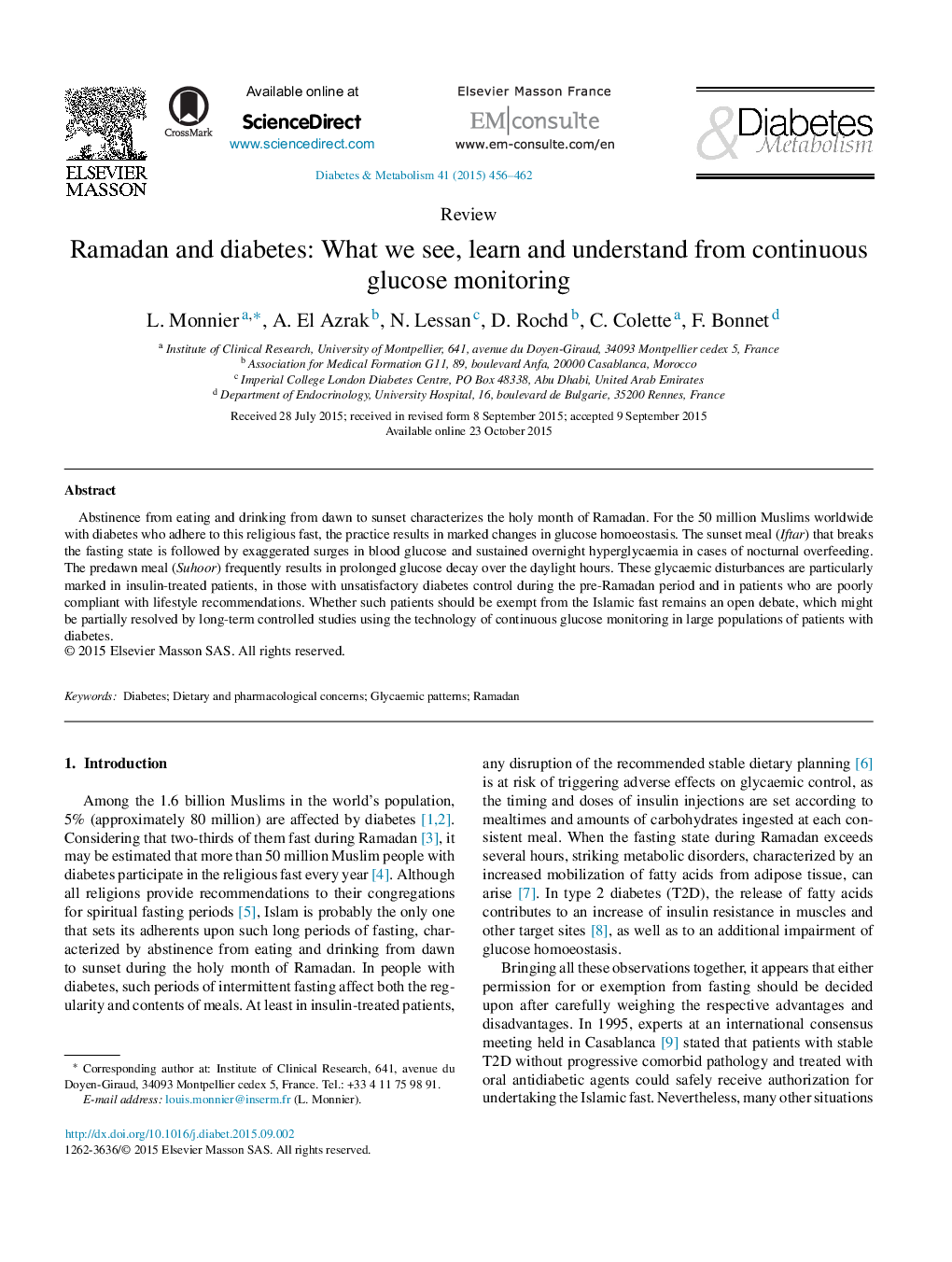| Article ID | Journal | Published Year | Pages | File Type |
|---|---|---|---|---|
| 3258995 | Diabetes & Metabolism | 2015 | 7 Pages |
Abstinence from eating and drinking from dawn to sunset characterizes the holy month of Ramadan. For the 50 million Muslims worldwide with diabetes who adhere to this religious fast, the practice results in marked changes in glucose homoeostasis. The sunset meal (Iftar) that breaks the fasting state is followed by exaggerated surges in blood glucose and sustained overnight hyperglycaemia in cases of nocturnal overfeeding. The predawn meal (Suhoor) frequently results in prolonged glucose decay over the daylight hours. These glycaemic disturbances are particularly marked in insulin-treated patients, in those with unsatisfactory diabetes control during the pre-Ramadan period and in patients who are poorly compliant with lifestyle recommendations. Whether such patients should be exempt from the Islamic fast remains an open debate, which might be partially resolved by long-term controlled studies using the technology of continuous glucose monitoring in large populations of patients with diabetes.
